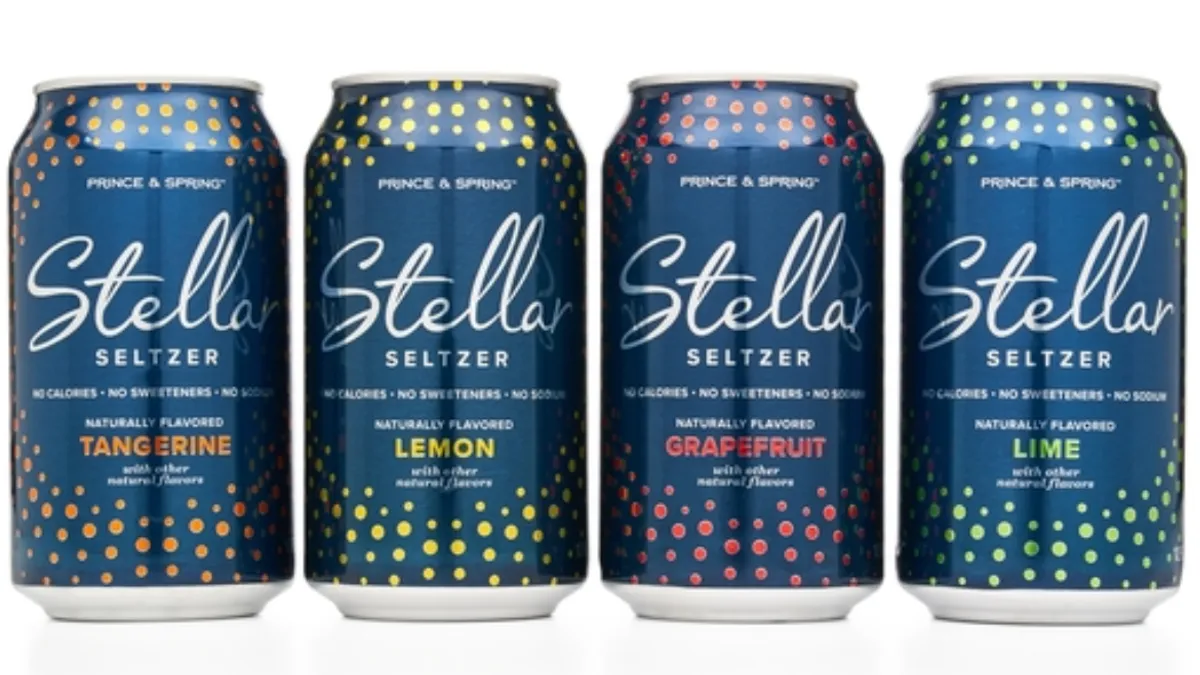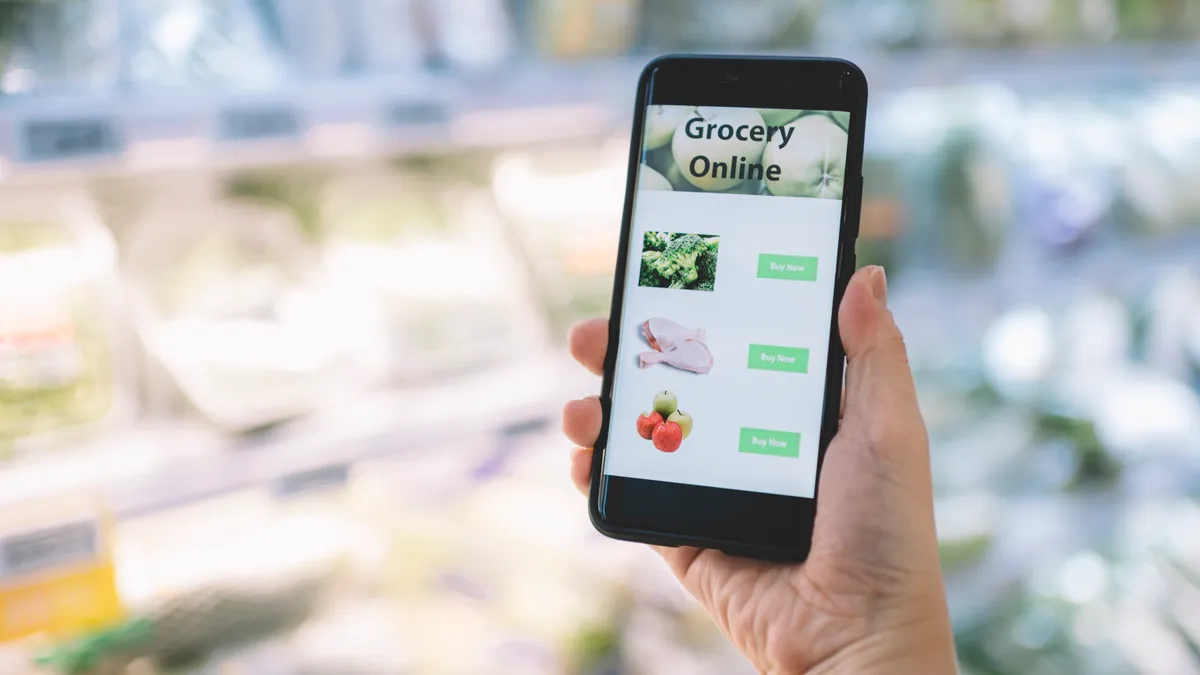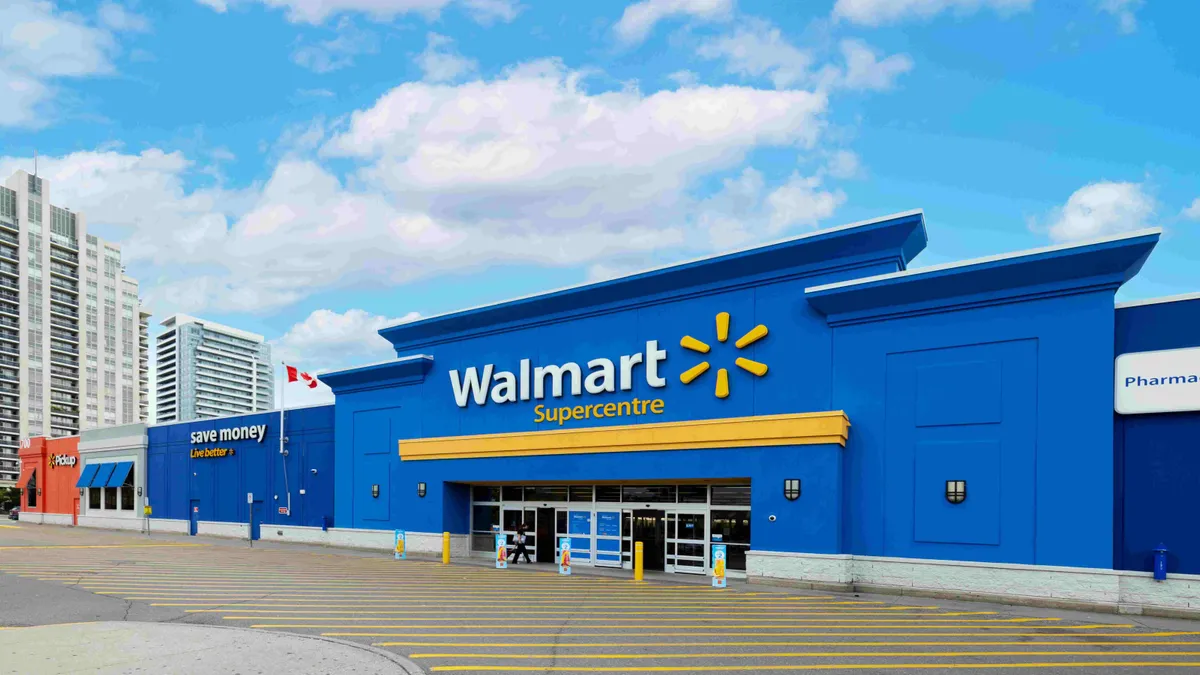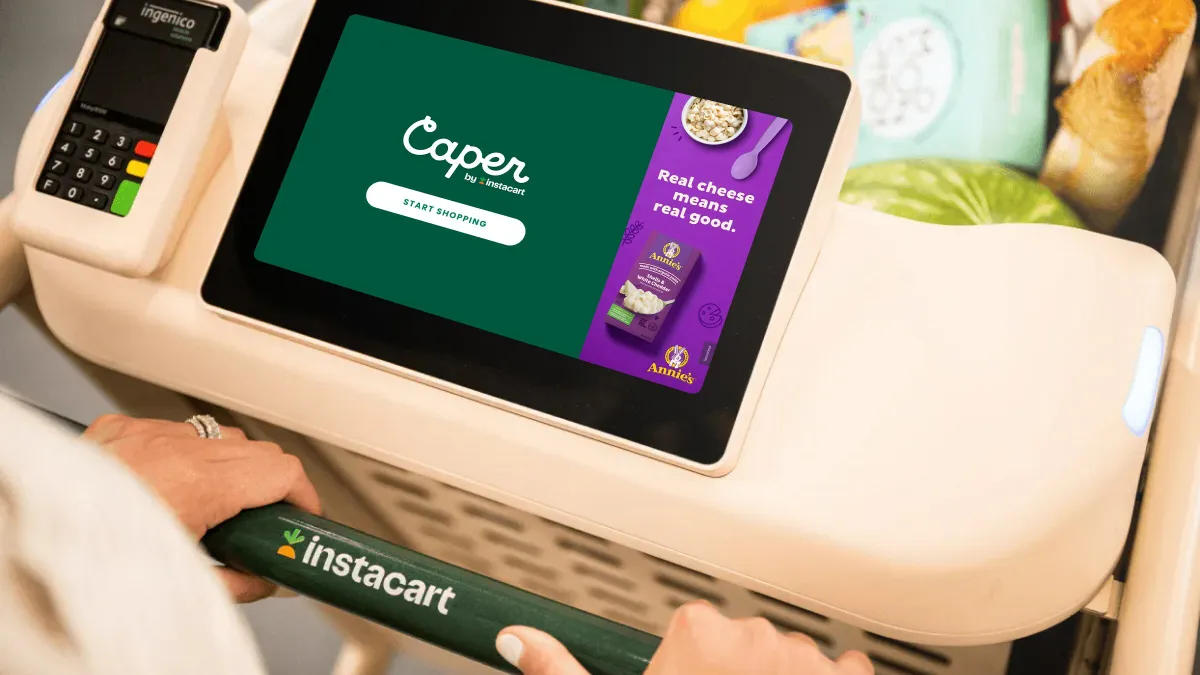Boxed has made its name selling brand-name consumables by the case, but its rising star of late has been Prince & Spring, a private label line that includes more than 100 different products including seltzer water, trail mix and paper towels. Now, the online grocer wants to get some of those products on store shelves.
In a recent interview with Grocery Dive, Boxed’s head of private brands, Jeffrey Gamsey, said the New York-based company has been in talks with retailers about stocking selections from the e-tailer in their stores. He declined to name names or specify which products Boxed is shopping around but said there has "already been some interest" in the company’s offerings.
"It’s something we’re exploring. We’re still in the early stages," Gamsey said.
Securing shelf space against a sea of CPG competitors is no easy task. But Boxed is hoping its knack for reaching coveted millennial shoppers will give it an edge. Prince & Spring, which debuted in 2015 and comprises 15% of Boxed’s sales, competes in staple categories like coffee pods, household cleaners, snacks and beverages. Sales of the private label line grew 400% between October 2016 and October 2018.
Gamsey said Boxed develops Prince & Spring products in categories where it feels it can match or beat name-brand competitors. The company rigorously tests each offering, he said, and spends a lot of time on package design as well. Most of the products feature spare, stylish labels with descriptive names below the Prince & Spring label — "Colombian Coffee Pods" and "Food Storage Containers," for example. Others take a more brand-centric approach, like Jackpot popcorn, Lyt alkaline water and Fruitmojis, a line of gummy snacks.
In March, Boxed rolled out Stellar Seltzer Water, which quickly became the top-selling choice among the 30 seltzer and sparkling waters Boxed offers, including La Croix and Pepsico’s Bubly. Gamsey said its sales velocity is in the top 50 among the site’s 1,800 products.
"It was surprising to us in such a crowded category," he said.
Developing Stellar Seltzer took a little over a year and required several rounds of taste testing among seltzer water aficionados, Gamsey said. The company was aiming for a slightly higher effervescence than La Croix but slightly lower than Polar. Boxed promotes the drinks, which come in a variety pack with four flavors, as mixers as well as an all-day drink.
"To have 30 brands in the category is quite a few, but we find they’re great trip drivers and they’re highly consumable," Gamsey said.
Private labels and challenger brands have found success across categories as legacy packaged goods companies including Campbell Soup and Kraft-Heinz have stumbled. As consumer tastes rapidly evolve, these competitors that long ruled the shelves have had a hard time keeping up. Even National Beverage Corporation, maker of La Croix, the longtime leader in the red-hot seltzer water category, has slipped after a class-action lawsuit filed last year alleged the company uses unnatural ingredients in its "naturally essenced" drinks.
Boxed’s interest in securing real estate inside supermarkets also underscores the continued importance of physical stores amid an industry-wide e-commerce push. Amazon acquired Whole Foods two years ago and is now reportedly developing another chain, while Walmart’s e-commerce growth has been anchored by its more than 2,000 stores that offer free grocery pickup. Meal kit companies like Blue Apron that have struggled with profitability online are now turning to in-store sales.
Research firms estimate e-commerce comprises anywhere from 2% to 5% of total grocery sales, while a Gallup poll last year found that 81% of consumers shop for groceries in-store at least once a week.
Boxed, which rebuffed a $400 million acquisition offer from Kroger and held talks with Amazon, Costco and Target more than a year ago, according to Bloomberg, may look to partner with some of the very chains it competes with as it grows. In an interview with Grocery Dive earlier this year, CEO Chieh Huang said he hopes to expand produce sales by using retailers' stores and distribution centers. The company currently offers produce, eggs, milk and other perishables to shoppers in five markets where it currently operates warehouses: Atlanta, Dallas, New Jersey, the New York/New Jersey metro area and Boston. Boxed also aims to sell some of its automation technology, which it developed in-house, to other retailers.
Although its closest direct competitors are Costco and Sam’s Club, Huang said Boxed is vying with all types of food retailers for customer dollars. He noted, however, that his company is not trying to go head-to-head with the biggest online competitor of all.
"If we try to chase them and say we're going to out-Amazon Amazon, that's the first day of the decline of Boxed," Huang said. "If they want to come closer to our business, there's nothing we can do to stop them. But I just know it'd be stupid if we try to run closer to their business."





















